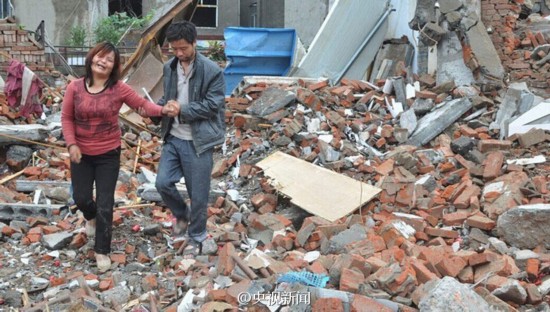HIV cases rising among the elderly in Beijing
China Daily, July 31, 2014
The number of newly discovered HIV cases in people aged 60 or older increased in Beijing in recent years.
Men who have sex with men remain one of the key groups in which the city is intervening to stop the spread of HIV, said an official from the city's Center for Disease Prevention and Control.
The latest statistics made public by the city's Health and Family Planning Commission show that from January to the end of June, the city reported 48 HIV cases in people 60 or older, compared with only 17 cases in 2007.
Most of the infected individuals are men, and most were infected through sex, said Lu Hongyan, director of an institution devoted to the prevention and treatment of sexually transmitted disease and HIV/AIDS under the city's disease control center.
However, the situation is not so severe that people aged 60 or above are going to become a key group for intervention, Lu added, since they account for less than 3 percent of 1,680 newly discovered cases in the city in the first half of this year.
"The key groups for intervention remain sexually active gay men and people who have extramarital or commercial sex," she said.
More than 93 percent of the newly discovered cases so far this year in Beijing were infected through sex, and more than 72 percent of those involved men having sex with other men, according to statistics issued by the city's Health and Family Planning Commission.
The proportion of newly discovered HIV cases in Beijing involving men having sex with men increased sharply, from 22.8 percent in 2006 to 72.7 percent by the end of June this year, the commission said.
"The prevalence of HIV has indeed been increasing among men who have sex with men," Lu said. "Many in the group know that they shouldn't have more than one sexual partner or engage in unprotected sex, but it's hard for them to turn that knowledge into practice."
Besides hospitals that carry out HIV tests for patients, the city has been paying nongovernmental organizations, such as those in gay communities, to carry out testing and consulting. The idea is to encourage gay people to be more accepting of the services, she said.
As time goes by, however, Beijing will possibly see more HIV cases in the 60-and-over category, just as the whole country has seen in the past few years, said Wu Zunyou, director of the National Center for AIDS/STD Control and Prevention.
The reason for the increase, he said, is that people nowadays live longer and tend to be healthier; so it's more common for those in their 50s or 60s to seek extramarital sex, which is too often unprotected.
"The focus of our intervention is men who have sex with men, but seniors should also be covered by our efforts," Wu said.





